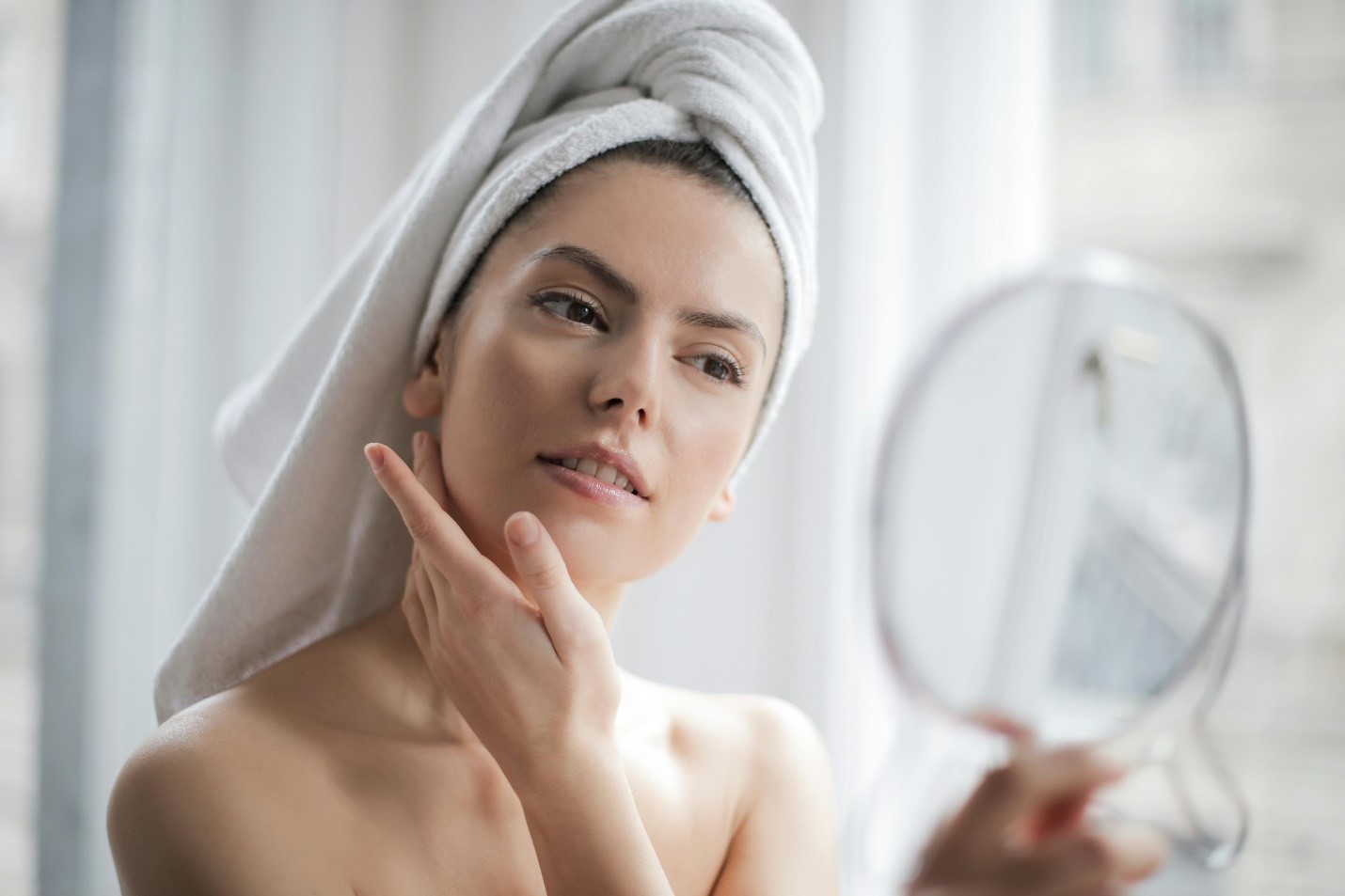Skin is the biggest organ in the body. When healthy, its layers work diligently to safeguard us. But when it’s weakened, the skin’s capacity to serve as an effective barrier is diminished. Therefore, we have identified the most effective strategies to promote skin health to help it continue its protective function.
5 Ways to Improve Skin Health
1. Manage Stress
Stress management Unmanaged stress may make your skin more sensitive and cause acne and other skin disorders. Take efforts to control your stress to promote good skin and a Healthy Mindset. Get sufficient rest, establish acceptable limitations, reduce your to-do list, and create time for activities you like. The outcomes may be more drastic than anticipated.
Additionally, Poor sleepers report greater indicators of early skin aging and a diminished capacity to heal their skin from environmental stresses such as sun exposure at night. Without sufficient sleep, the body cannot manufacture new collagen. Collagen inhibits the drooping of the skin.
2. Consume Healthful Meals
Getting adequate sleep is vital for your health and receiving sufficient nourishment. Eating a balanced diet is essential. You do not need to ban any foods, but a diet high in refined carbs, Overly processed meats, and fried foods are detrimental to your general health, including your skin. Include as many healthy items as possible, such as fruits, Vegetables, and whole grains.
Numerous experts concur that what you eat has a significant impact on your skin’s health, and research has proven that food is vital for acne, aging, and even skin cancer.
Further, recently, one of the most talked-about subjects in health is gut health — and the gut microbiota influences your skin. Scientists are investigating the gut-skin axis and the relationship between gut bacteria and skin health. Diet is one of the most important determinants of gut microbiota.
Healthy fats may help refill your body’s capacity to produce healthy and robust cell membranes, [which] can restore the skin barrier and defend against environmental harm.
Inadequate consumption of good fats may lead to dry skin and hair, and boosting these fats in the diet may aid in the treatment of some skin disorders characterized by extreme dryness.
3. Maintain Your Skin’s Moisture
It is essential to maintain your skin hydrated to feel and look healthy. And even if you have oily or acne-prone skin, your skin still needs hydration.
While hand cleaning is essential for excellent hygiene, excessive hand washing may cause dry skin, particularly when using hot water and strong soaps. To cure dry skin, use moisturizing lanolin cream or lotions and bathe and wash your hands with warm rather than hot water. You may also use a humidifier to make your home’s air less dry.
4. Reduce Sun Exposure
The sun may also cause skin damage. Sunlight provides UV radiation that causes sunburn and accelerates skin aging, increasing wrinkles as one age. The relationship between UV exposure and skin cancer is substantial. Therefore, you should protect your skin from the sun.
5. Keep Hydrated
Dehydration may result in many unpleasant symptoms, including weariness and stomach difficulties. And while drinking more water may improve health, it is also beneficial for the skin.
There is no scientific consensus on whether drinking water improves skin hydration levels, despite widespread belief to the contrary. However, drinking water is beneficial for your general health and, thus, your skin. In addition to utilizing an excellent moisturizer, you can also include the use of a humidifier in your routine, particularly if the air in your home or office.
As bonus!
Resist Smoking
Smoking ages the skin and adds to the formation of wrinkles. Smoking affects collagen and elastin, the fibers that give skin its strength and suppleness.
In addition, smoking raises the likelihood of developing squamous cell skin cancer. Quitting smoking is the greatest approach for smokers to protect their skin. Consult your physician for advice or therapy to help you quit smoking.
Gentle cleaning enhances the appearance of the skin. To cleanse your face gently, moisten it with lukewarm water. Then, use a gentle cleanser, applying it using your fingers in a circular motion. Complete the process by thoroughly washing away the cleanser and wiping your skin dry with a clean towel.











